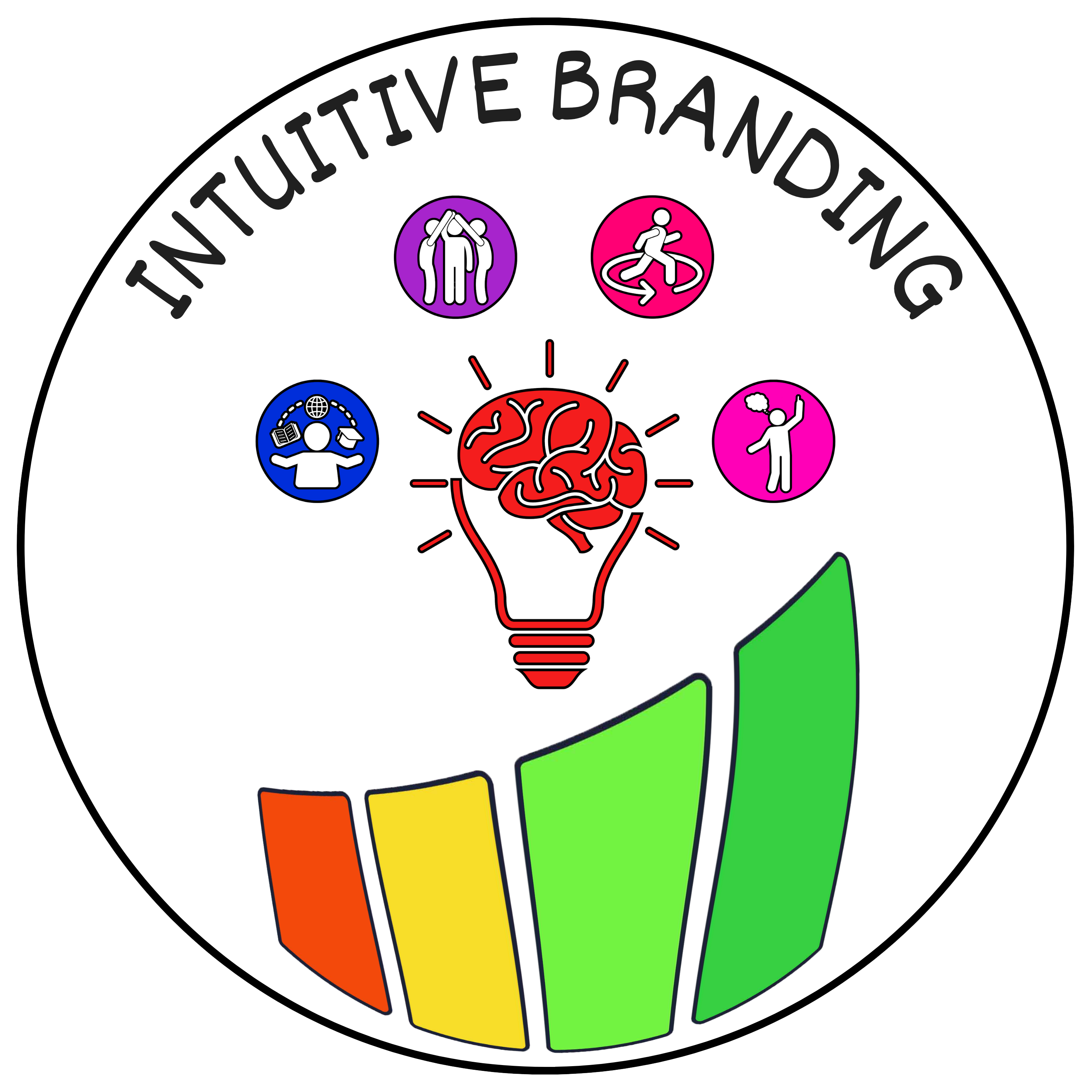With the current global business atmosphere, making the right decisions quickly is critical to success. But how do successful entrepreneurs and business leaders consistently make the right choices? After thousands of hours reviewing research and interviewing hundreds of entrepreneurs for my books, I found the answer: intuition. Specifically, four types of intuition that play a crucial role in building a trusted brand that attracts highly talented employees and fiercely loyal customers.
In this blog, we’ll explore the four types of intuition and how understanding them can help you build a business that people trust.
What Are the Four Types of Intuition?
The four types of intuition are: Experiential Intuition, Relational Intuition, Situational Intuition, and Creative Intuition. Each one of these types analyzes decisions in just 33 milliseconds and provides feedback on whether a decision will help or harm your business.
Experiential Intuition
Experiential Intuition is based on the vast amount of information your brain has collected from past experiences. It serves as a reference point that helps you make quick decisions by recalling what has or hasn’t worked before.
For example, entrepreneurs like Marley Jackson relied on their Experiential Intuition when they made the leap from a secure job to starting their own businesses. Trusting that their past experience would guide them, they built successful ventures.
Watch How Dr. Kevin Fung’s Experiential Intuition Saved a Life
Relational Intuition
Relational Intuition helps you understand whether the people involved in a decision can be trusted to move things forward. It takes into account verbal and non-verbal cues such as tone of voice, body language, and past behavior.
For example, a leader may decide not to partner with someone because their Relational Intuition tells them something is off—possibly preventing a major business failure. Ignoring this intuition can lead to disaster, as seen in the story of a 59-year-old family business that collapsed after relational red flags were ignored.
Read more about how ignoring relational intuition destroyed a 59-year-old family business.
Situational Intuition
Situational Intuition helps you assess whether the environment or context you are in supports a decision. This type of intuition evaluates external factors and identifies if the conditions are right to proceed with a plan or idea.
Think of this as reading the room in a business meeting or sensing market conditions before launching a new product. Missing these cues can lead to costly mistakes, while heeding them can lead to massive success. In fact, many entrepreneurs have shared that trusting their situational intuition led them to pivot at the right moment.
Learn About Mark Healy’s story in the Video Below
Creative Intuition
Creative Intuition is what pushes you to take calculated risks and think outside the box. This type of intuition allows entrepreneurs to imagine bold, innovative solutions to complex problems. If your Creative Intuition knows that the decision has the right level of risk and potential for reward, it encourages you to take action.
J.K. Rowling’s Story of Intuition
Steve Jobs famously credited his Creative Intuition with helping him innovate at Apple, leading to iconic products like the iPhone and iPad. It was the driving force behind his success in making Apple the global powerhouse it is today.
Watch the Video Below to Learn More About Steve Jobs’ Journey
Why the Four Types of Intuition Matter to Your Business
Every business leader faces critical decisions daily. From hiring employees to launching new products, every choice can have a profound impact on the success of your business. The four types of intuition provide a powerful framework for evaluating these decisions quickly and effectively.
But here’s the key: these are the SAME four types of intuition that your employees and customers use to evaluate you and your brand. It takes just 10 to 14 seconds for people to sense whether they can trust you, and this judgment is based on their own intuitive signals.
The Cost of Ignoring Intuition
If you fail to convince their intuition that your brand is trustworthy, you risk attracting the wrong types of employees and customers—those who don’t care about your brand or your mission. When this happens, they are quick to move on, spending their time, energy, and money on other brands. Meanwhile, you’ll be stuck spending all your time dealing with one problem after another, which eventually erodes the success of your business.
Leveraging the Four Types of Intuition for Success
Understanding and leveraging these four types of intuition in your decision-making process is critical to growing your business and building a trusted brand. Whether it’s Experiential, Relational, Situational, or Creative Intuition, each type helps guide you toward making the best possible decisions for long-term success.
Check out How Tim Cook’s Intuition Led Him to Apple Here.
Conclusion
Intuition is a powerful and often overlooked tool that can guide leaders to make the right decisions. By understanding and utilizing the four types of intuition—Experiential, Relational, Situational, and Creative—you can create a trusted brand, attract loyal customers, and foster a team of talented employees.
The key takeaway is that intuition isn’t a mystical force, but a cognitive process based on patterns, experiences, and external factors. Learning to trust and refine your intuition will help you navigate complex business decisions with confidence, just like successful entrepreneurs and business leaders have done for years. When you harness the power of these intuitive insights, you will find that they can be a game-changer in your journey to success.
FAQs: The Four Types of Intuition
Q: What are the four types of intuition?
A: The four types of intuition are Experiential Intuition, Relational Intuition, Situational Intuition, and Creative Intuition. Each type plays a specific role in helping you make quick and informed business decisions.
Q: How does experiential intuition work in business?
A: Experiential intuition draws from past experiences and decisions stored in your subconscious. It helps you recognize patterns and make decisions based on what has or hasn’t worked before.
Q: Why is relational intuition important in hiring?
A: Relational intuition helps you gauge whether a person can be trusted to contribute positively to your business. It uses non-verbal cues like body language and tone to determine if someone is a good fit for your team.
Q: How can I improve my situational intuition?
A: You can improve situational intuition by staying aware of your surroundings, being open to feedback, and paying attention to external factors like market conditions or industry trends.
Q: Can creative intuition really help me take risks?
A: Yes! Creative intuition gives you the confidence to take calculated risks that have the potential to propel your business forward. It helps you see opportunities where others might see challenges.
Q: How do employees and customers use their intuition to evaluate brands?
A: Employees and customers use the same four types of intuition to quickly determine whether a brand can be trusted. Their subconscious decisions are based on signals they pick up within 10-14 seconds of interacting with your brand.

